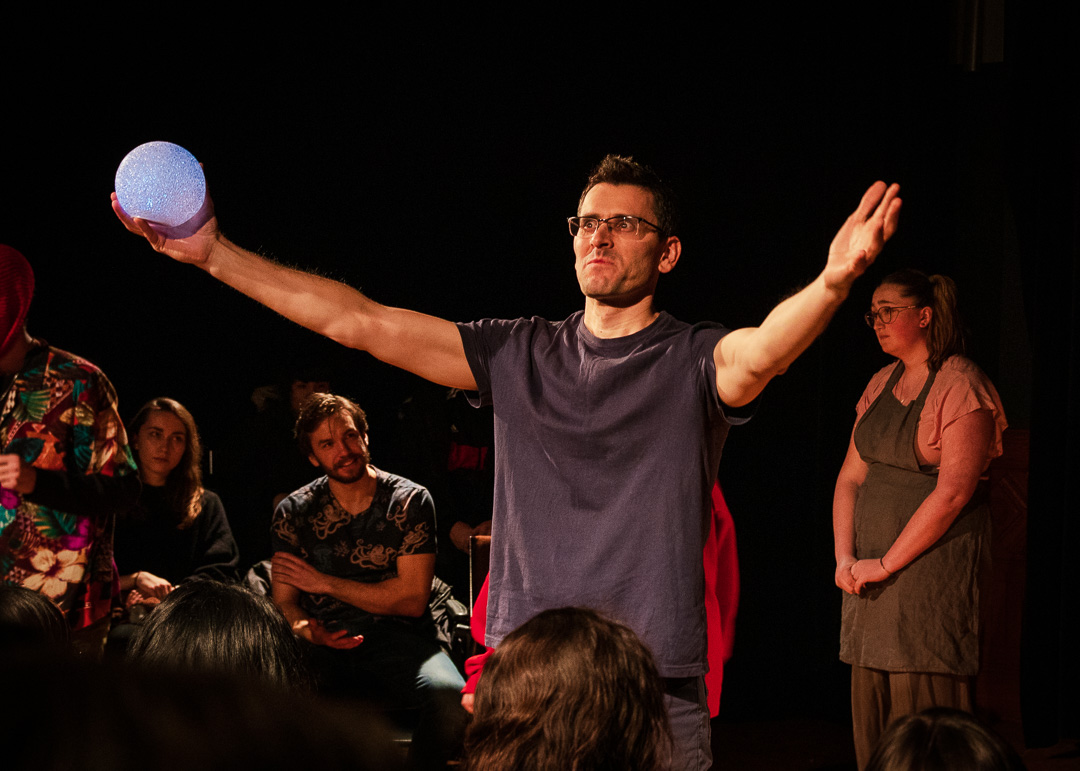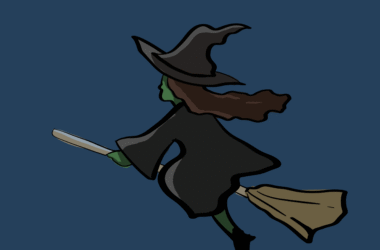The competition’s rules are straightforward: Twenty-four hours to write a play, 24 more to rehearse, followed by their performance. On Jan. 25, an eager audience filled up the Tuesday Night Café theatre, witnessing four concise and fully-realized plays.
Each performance ran about 20 minutes. Sam Katz, U0 Arts, directed the first, called The Boogie, which, from its opening moments, toed a tense line between comedy and horror. As Katz, also an actor, made his way on stage, the room was dark and silent. Seemingly setting up a creepy and uncomfortable experience, Katz stood still until “I’m so Excited” by The Pointer Sisters echoed through the speakers and he began dancing, moving awkwardly like an alien trying mimic a human boogie. The gag set a unique tone for the rest of the act, and once the laughter subsided, the piece began prodding notions of justice and punishment—once it had been revealed that the endless dancing was a punishment for murder. Despite some repetition and an extended runtime, the piece seemed to accomplish what it set out to do: Make the audience laugh, make them uncomfortable, and make them think. Each play that followed was as succinct as the first.
Selene Coiffard-D’Amico, U2 Arts, directed On Purpose, a play that captured grief, love, and family in surprising fullness, while Emma Victoria, U2 Arts, brought to life The Devil and The Wind, a fantastical story which saw the former and the latter personified and locked in a toxic relationship. Coiffard-D’Amico’s piece explored the ways in which the death of someone close to us pushes us to re-examine our relationships and ourselves—and to evaluate our lives in the face of their inevitable end. Meanwhile, Victoria’s play took that shape of a classic folk tale, standing out in contrast to the secular and modern narratives occupying the rest of the show. The folk tale was made all the more poignant through its Old Montreal setting, grounding its supernatural elements in familiar locations. While Coiffard-D’Amico’s work contributed significantly to the night’s performances, the piece which won the competition, as voted by last year’s directors, was Riley Palanca’s Art, Business, and Coffee.
Funny, touching, and relatable, Palanca’s play focussed on the connections formed between friends and the differences which allow them to compliment one another. With some existential undertones, each scene featured characters engaged in conversation, often speaking pointlessly, revealing their neuroses as much to the audience as to themselves. The play was set up similarly to a sitcom, with each character embodying a particular trait. One character’s mantra, “just gotta keep moving,” contrasted with the laid-back, stoner vibes of another, while a third character’s preoccupation with his financial situation was paralleled by another’s artistic ambitions. It was an all-encompassing meditation on the struggles of being a young, broke student, and it succeeded largely thanks to the cast’s charm. Art, Business, and Coffee was also genuinely funny, and didn’t force the drama as hard as the other plays tried to. It focussed on the mundanity of daily life and let those moments speak for themselves, instead of shoving quarter-life sadness down the audience’s throat.
If not for the short runtimes, one might not have known that these plays were written and rehearsed in two days or less. Each piece hit on a few specific ideas and carried them through to the end, while the few missteps and awkward moments only added to the joyful, low-stakes atmosphere that makes this festival such a draw among students. The event is set to return next year, and in the words of the Pointer Sisters: I’m so Excited!







